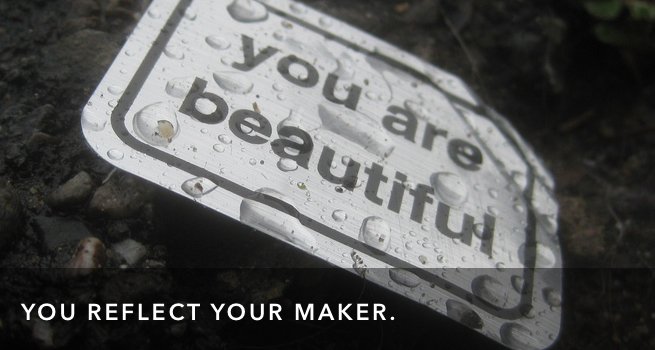6 min. to read.
Having a life purpose is important. Organizational growth experts, therapists and coaches alike will agree. I’ll tell you the same: God created you with a purpose. But the truth is, a sense of purpose is not enough.
A hammer has a life purpose. Coffee makers and nails and ironing boards have a purpose. Who wants to be a hammer in the back of the tool box?
You know what happens to utilitarian things that have a purpose? They get used. Frankly, no one wants to be used. No, the purpose God’s given you is more than this.
At least not in the utilitarian sense. Here’s what I mean:
God doesn’t want to use you.

Think about the kind of art that moves you most. Maybe you’re a music person. A live concert can take you in so deeply that you feel alive. Maybe you’re a fine art person who can lose themselves for a day walking through a museum. It could be literature or photography, anything really.
Remember the experience of being moved by that work of art. Did it inspire you? Did it cause you to think deeply about yourself or the world around you? Did it just sweep your heart with beauty?
Now consider this. Does that piece of art have purpose?
Surely it does. The artist who made it had a life purpose for it. The artist was expressing themself, sharing something about their perspective on the world. They were communicating something. Every work of art contains a little bit of the artist who made it.
That work of art manifested it’s purpose by moving you. Perhaps it even shapes you and your world view a little bit.
This is definitely purpose, but it’s not simple utility. It’s something better than that, something beautiful and good. God doesn’t want to use you, like a hammer. God wants to express God’s own character through you.
Ephesians 2:10 starts with these words: “For we are His workmanship…” You are made by God. Those words are clear and to the point. But there’s something more here. The word that is translated “workmanship” is the Greek word poiema. Sound like anything familiar? This is where we get our English word “poem.”
The Greek refers to something that has been hand-crafted by a master artist. So, the verse could just as accurately be rendered, “For we are God’s painting, or sculpture, or poem.” This passage of scripture says that you are a piece of art, made with the kind of thought and care that an artist pours into their masterpiece.

When we speak of purpose, we cannot just speak of utility. We must speak of things like beauty, goodness, inspiration, and joy. This is the truth: You carry the imprint of the Artist that made you. You communicate something about this Artist’s perspective and character. You were thoughtfully considered and designed. That means you have a purpose. Not just a function, but a good and beautiful purpose in the world.
Spiritual Vitality starts with a good & beautiful purpose.
This series of posts is expanding on a framework for spiritual growth that I’m calling the 210 Life, that grows out of the implications of Ephesians 2:10.
It starts with Position 1. “You were created by God, a hand-made piece of art, with a good and beautiful purpose.”
I’ve broken that phrase down taking each phrase in turn. Today is the last phrase, “…with a good and beautiful purpose.” Spiritual vitality can come when you understand that you have a good and beautiful purpose in this world.
“You have a good and beautiful purpose in this world!
Work slowly, even meditatively, through the words of Ephesians 2:10. Take each phrase in turn. Ask yourself:
- Do I believe this?
- If I don’t believe it, what in my life stands in the way?
- If I did believe it, how would my life change as a result?
“For we are His workmanship.”
This means that you were created by God. You are not an accident. You are not the mere outcome of biology, chemicals and circumstances. You are on purpose, intended, expected, planned for. Your value as a precious child of God begins here.
“Created in Christ Jesus for Good works.”
That means you are not just something God made, but someone God made with care and intention. You are a piece of art, expressing God’s character and purpose in this world. You have a purpose, but it’s not just utilitarian. Your purpose is good and beautiful. Your identity is rooted here.
“Which God prepared beforehand.”
That means you don’t need to be afraid or insecure. God knows the direction of your life, and has a plan for you. It might not be the plan you think. It includes bringing beauty from ashes, redeeming what was lost, and working all things together for good. Even if you don’t know it and can’t see it now, God is working in your life to bring His good and beautiful purpose about.
“That we should walk in them.”
Everything before this is about God. This is all what God has done. Here’s where you come in. You can choose whether you will walk in this path or not. You get to decide whether to align yourself with this good and beautiful purpose. The daily steps of your life can be a part of God’s amazing design.
I encourage you to reflect even journal on these phrases and the three questions I asked above. Consider what life purpose God might be calling you to. Unlike paintings in a gallery we are not artwork meant to hang passively on a wall. We are meant to be out in the world reflecting the beautiful character of the Artist who made us. Unlike painting and sculpture we can choose to step into that purpose every day.
Question: What are you doing to step into your good and beautiful purpose?

Thanks for the perspective. For all of the years that I’ve sat in church listening to preachers the message has seemed to be utility. God wants to use us to carry out his plan, like we are just a conduit. The analogy with a piece of art work says we are so much more than a conduit. We are a piece of art, something special in its own right, through which God wants to express God’s own character. This blessed me. Thanks.
Hey Ken, that was always my experience too. It seemed like it was just a story about submitting to being used. The story in scripture is much more beautiful and compelling than that, I think. Thanks for leaving a comment! That blessed me.
Thanks for reposting these articles. The 210 life ideas are helping me relax into my calling rather than just striving for it.
Man, that is so good to hear. Thanks for sharing that with me!
Marc this is you in full swing, being an active artist with words and living your purpose each day.
Thanks a bunch! I’m always encouraged by your words.
Wow. Kind and encouraging words. Thanks, Troy.
Viewing “workmanship” as “poem” is very eye opening. In 31 years of being a Christian I’ve never seen that connection before. It just opened up this verse in a whole new way for me.
The three questions are applicable to so many things in our lives that we use to define our self-image. We can apply them to scripture, our personal and professional goals, our visions of who we want to be and who we are in Christ.
Thank you so much my friend!
SO glad to hear it, Christian. It really does give a different perspective, doesn’t it? God’s work in our lives is artful, not just pragmatic. Glad to be of help!
Beautiful and encouraging. Thank you Marc. I needed to hear this today. For many years I felt my only propose was to be “useful”, and if I wasn’t being useful, e.g. successful, in my life and ministry somehow I wasn’t pleasing God, or worse! That’s the fruit of performance based, conditional Christianity. But we are ALL His craftsmanship and have much more purpose than just a “tool”.
Hey Rick, thanks for reading and commenting. I connect with what you write. For so much of my life, my performance was my way to secure my value and belonging. My performance was measured in how well other people experienced value through me. That’s me being useful to them. It’s a long drag to have your life only be utilitarian.
I met a friend today and he talked so much about how God has revealed himself to him, what he said was so touching I forgot I ever knew him, he was like a new being, the way he talked about God’s word I was very moved.
I believe God has a purpose for everyone of us, my friend found his purpose through the anointing of the spirit of God, and he his very happy.
let’s learn to fellowship more with God, so he can reveal to us, what our purpose is.
Thanks for sharing that moment. The world would be a better place if we each could be living in our God-given purpose like this.
Marc, so much of this resonates with me. Especially the comments. How did you move away from performance based value? I feel guilty if I’m not being useful or doing God’s work. What are some examples of purposes that God created us to be that aren’t performance based? I also measure my value on how others experience value through me. How did you change this thought pattern?
Hey Kristi, This is a central issue for spiritual and emotional growth. I’m glad you’re asking it. As to what purposes you might have been created for that are not performance based? Well… no good parent has children in order for those kids to earn their love or place by performance. Our purpose is to love and be loved. Even for Christians! Our witness is that perfect love casts out fear, and we are loved perfectly.
How to unpack this inner drive? I’d suggest looking in a few direction. For many of us, the drive to perform is an artifact of our childhood. For one reason or another, we learned that we could secure belonging, or affirmation, or even protect ourselves, if we could perform well. Some of us had perfectionist parents, or grew up in perfectionist communities of faith. Some of us experienced trauma or abuse, and becoming controlling, perfectionist, or driven is a common coping reaction where we try to manage our own sense of safety.
And then for some of us, the drive is actually theological. We were raised with a picture of God that is unrelenting, never satisfied, always evaluating every aspect of our lives for holiness. If we were exposed to this kind of theology as children, our natural good-hearted desire to please our parents and to please God can develop into an unhealthy drivenness.
How to tackle these things? It depends on the source in your life and the intensity.
Deepen your understanding of God as revealed in Jesus. Notice how Jesus was eminently compassionate to those who were on the margins, or who were “failing” by current standards. Come to see yourself as one of God’s beloved children, that God knows you through and through including all those places where you fail, and loves you still. Reflect on how, for example, God blessed Jesus’ identity at his baptism which happened before Jesus had accomplished anything of significance.
If your performance-based value is rooted in childhood, you may need to do some healing work in that area. If you’re reasonably healthy and reflective, you may be able to do this with journaling, inviting God to help you see the circumstances of your childhood with the eyes of God’s love. If there was deep pain or trauma involved, it may require therapy to help you connect all the dots. I spent many years in therapy and found it profoundly helpful.
I’d like to recommend a 30-day devotional by my friend Jonathan Puddle that can help you walk in this direction a bit. It’s called “You Are Enough: Learning to Love Yourself the Way God Loves You.” It’s a bit stretching for many Christians who’ve been taught that any focus on yourself is selfishness, but I disagree. God wants you to know yourself truly and if your performance drive comes from attempts to earn love or justify yourself, there’s something there that I believe God wants to heal. (Find Jonathan’s book here: https://amzn.to/3rt2He3)
Blessings.